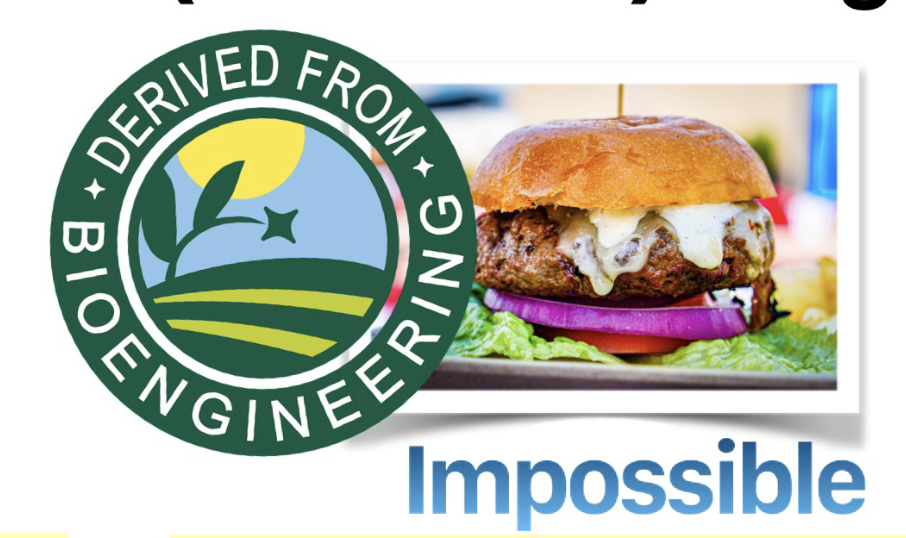HEADLINE HEALTH – We Googled the ingredients list for the Impossible Burger.
We want to say that doing so ruined our appetite for fake meat — the lab-based Frankenfood that vegans hope will replace genuine American beef and “save the planet.”
But the truth is, we’ve never had the slightest interest in consuming an Impossible Burger. This used to be true because we didn’t know what’s in it. Now it’s doubly true because we do know what’s in it. Quite simply, we can think of better things to eat.
Now that we’ve found out what they really put in plant-based “burgers” — a common laxative, for example, which the Impossible folks list as a Natural Flavor — we’re positive that the world’s most talked-about fake food will never cross our lips.
For those readers still undecided, here’s what’s in the Impossible Burger, ranked from highest to lowest content by weight.
Impossible Burger ingredients:
- Water – yes, the #1 ingredient in the Impossible Burger is water. Impossible Plant Based Burger sells for $6.29 per 12 oz. package at Target. That’s $8.39 per pound — for water. Compare with the #1 ingredient in real beef: beef. Even with Biden-flation, Target’s price for 93 percent lean ground beef is $6.69 a pound, 20 percent cheaper than the fake stuff.
- Soy Protein Concentrate – The bulk price of soybeans is $16.42 per 60-lb. bushel — about 27 cents a pound. We know the end product contains at least as much water as soy protein, reducing the combined cost of the main ingredients of Impossible Burger to about about 14 cents a pound. Follow the money — the retail cost per pound of Impossible Burger is nearly 6,000% the cost of its main ingredients. Leverage this with a sales pitch about saving the planet and you’ve got a real money-maker. Impossible, which remains privately held, reported that its fourth-quarter 2021 retail revenue increased by 85% and that it has “hundreds of millions” in sales, per CNBC. The benefits of real beef include supplying some nutrients that may be lacking in soy food, says Livestrong. Some minerals are also better absorbed from animal protein compared to soy.
- Coconut Oil – Coconut oil is 100% fat, 80-90% of which is saturated fat, says the Harvard School of Public Health. Karin Michels, an epidemiologist at Harvard, calls the substance “one of the worst things you can eat,” as good for wellbeing as “pure poison.” The wholesale cost is about $1.90 per pound.
- Sunflower Oil – Sunflower oil has many health benefits. It is low in saturated fat and high in two types of fatty acids, polyunsaturated fatty acids and monounsaturated fatty acids. Unfortunately, it’s only the fourth leading ingredient in Impossible Burger, you’re likely not getting much of it.
- Natural Flavors, 2% or less of: Mix all of the above in an industrial vat and you’ve got a cheap, nearly flavorless slurry. To make it taste like something — like anything — Impossible adds Natural Flavors. Sixteen of them. One of these is methylcellulose, a bulk-forming laxative commonly used to treat constipation. Another additive is cultured dextrose; “while the food additive has been studied for safety, the U.S. Food and Drug Administration has not completed its assessment and has not given it generally recognized as safe, or GRAS, status,” says Livestrong. Most of the rest of the “natural flavors” used are vitamins and minerals that are found naturally in beef but are lacking in soy.
If you still prefer fake meat over real American beef, go right ahead and have an Impossible Burger. It’s a free country — well, at least a little bit.



